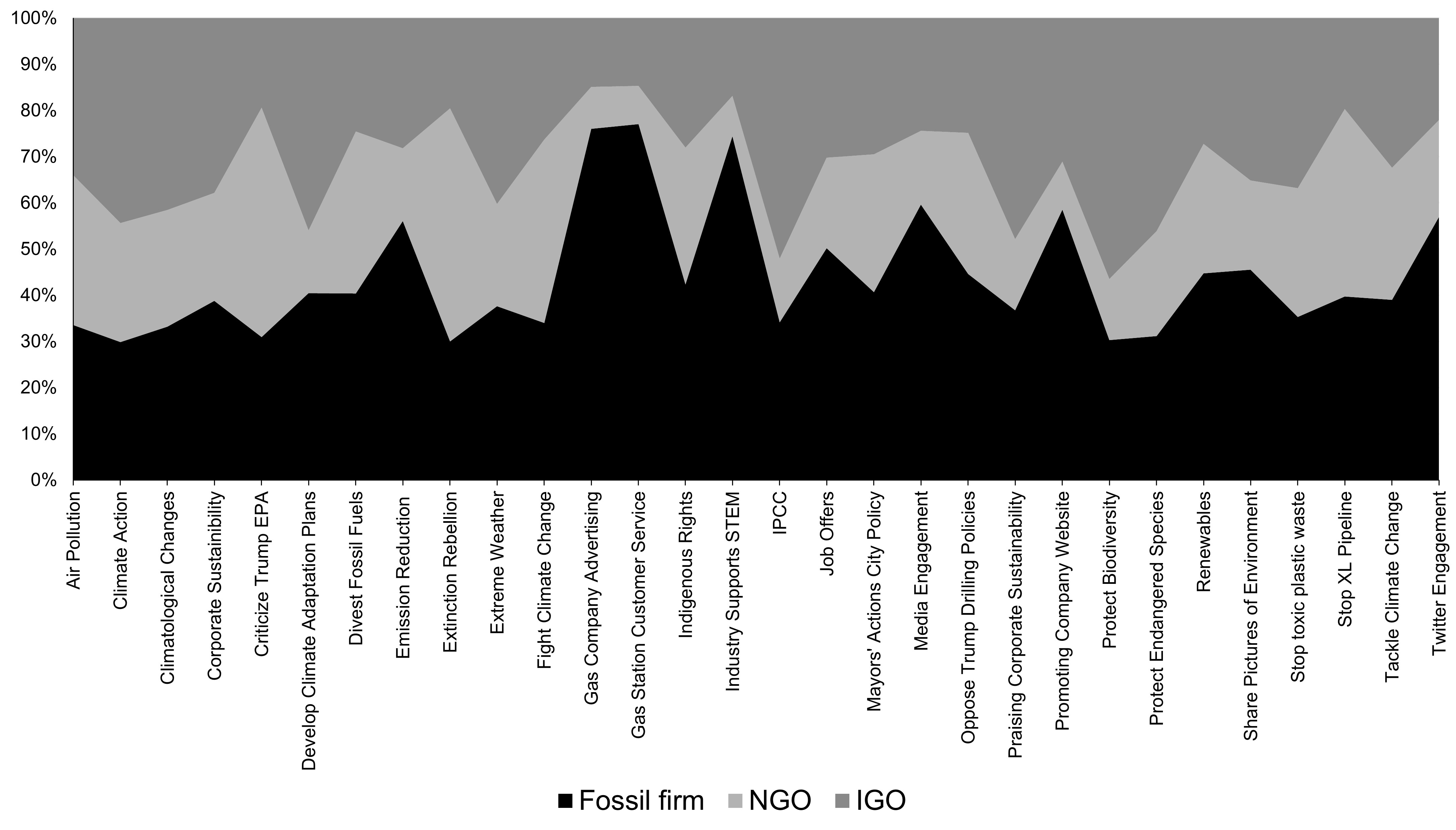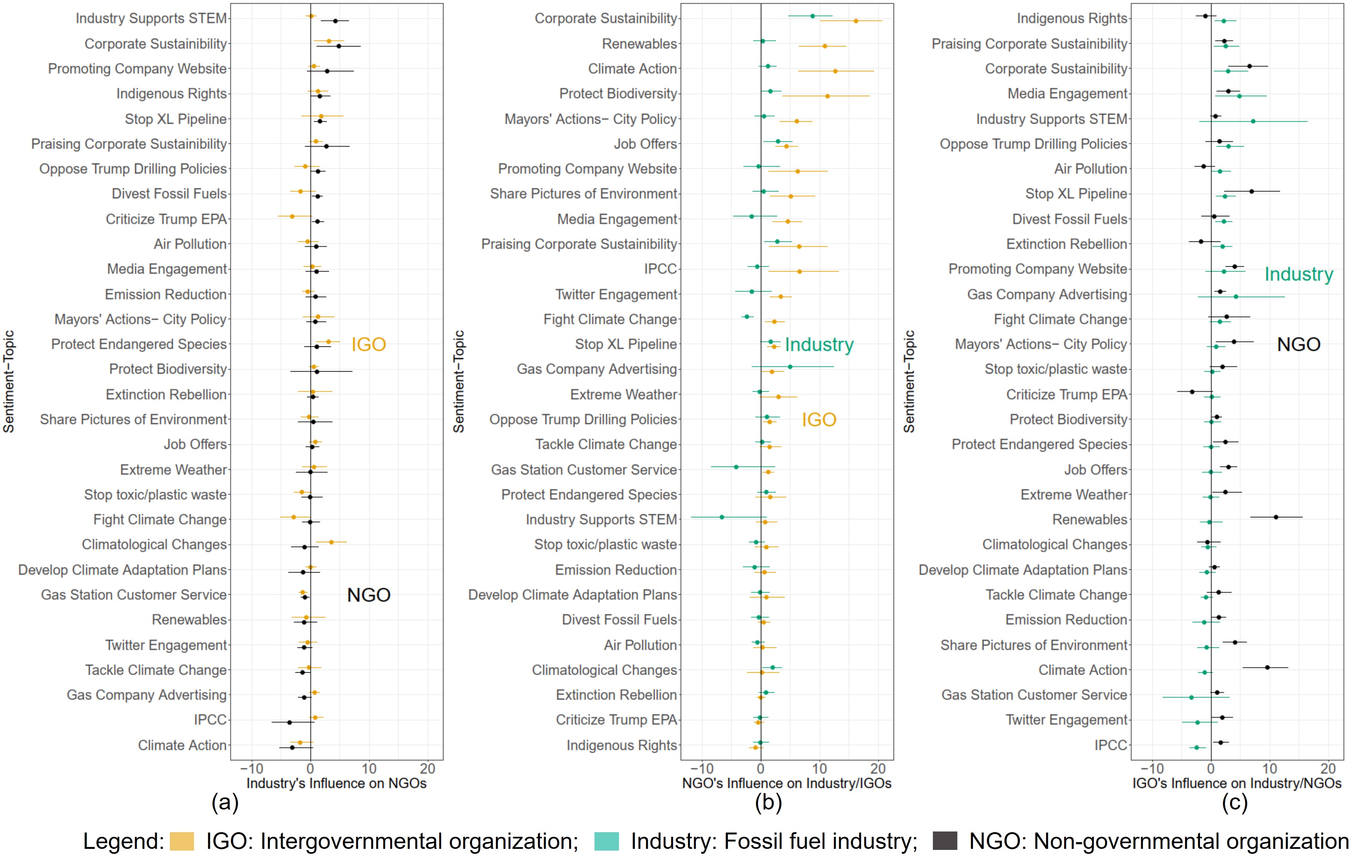Do fossil fuel firms reframe online climate and sustainability communication? A data-driven analysis
Published in Social Sciences

Why we did this
There is an increased understanding that climate misinformation can influence the consensus for climate action. However, the overall supply chain of such information flow is not clearly understood, which is needed to build guardrails against misinformation and its spread in this digital age. Social media platforms like Twitter (now known as X) are seen as a digital townhouse where influential stakeholders can use subtler strategies to emphasize favorable interpretations of events or data or reframing conversations to fit preferred narratives on climate action. This could have a disruptive effect on climate change mitigation goals.
In this paper, we investigae how powerful stakeholder groups like fossil fuel firms subtly shape (i.e., reframe) online climate and sustainability communication on Twitter using computational social science-led approaches.
What we did
We employed a data-driven natural language processing (NLP) and econometric technique to analyze stakeholders' online reframing behavior. We employ a simple theoretical framework based on the idea that climate stakeholders influence the discussion and set the boundaries of climate policy debate to achieve their objectives. For example, fossil fuel companies' interests include preserving profits and avoiding severe regulation by demonstrating to lawmakers and the public that they are committed to sustainability.
Our stakeholder groupings included eight polluting fossil fuel companies, fourteen important NGOs, and eight powerful IGOs. We particularly utilized their global Twitter account, which has at least 10,000 followers and a total following base of 9.6 million users. First, we extracted 30 most common topics (see Fig 1) from over 650,000 daily tweets across stakeholder groups between 2014 and 2021 and classified the embedded sentiments into positive, neutral, and negative categories. Then, using an econometric technique known as vector autoregression, we calculated each group's propensity to affect each other. Next, we statistically tested if these interactions are impacted by external factors like stock market performance and extreme weather events like drought, storms, heatwaves, and wildfires. The paper's method section contains the granular specifics.

What we found
We find supporting results that stakeholder groups try to influence each other by focusing on topics that are important to them with statistical significance. We see a directional effect as IGOs and NGOs become more responsive to fossil fuel firms’ tweets across the 30 topics. At the same time, they influence each other with statistical significance. Therefore, communication reframing occurs at two levels: first, the fossil industry influences IGOs and NGOs, which in turn influence themselves.
For example, we find that one standard deviation increase in fossil fuel firms’ probability of discussing their support for STEM initiatives and corporate sustainability results in a 5% increase in NGOs probability of discussing these topics. Similarly, IGOs tend to respond to fossil industry tweets by increasing their propensity to discuss corporate sustainability and climate change by 3% (see Fig 2).

Similarly, IGOs are more likely to influence NGOs on topics such as biodiversity protection, governance and city policies, renewable energy, corporate sustainability, and media interactions. We also find fossil fuel firms are more likely to interact with IGO on media engagement and advertising themes with large effect sizes and negligible engagement (small effect size) across topics associated with climate action, divestment, and environmental policies.
However, we did not find any significant change in the fossil industry’s online messaging propensity due to stock market performance and extreme weather events.
Why it matters
By increasing the accountability of stakeholder groups, this research may aid in the fight against climate misinformation at its source by identifying how reframing occurs in online communication. Enhanced comprehension of the information supply chain architecture among influential stakeholder groups may facilitate the development of regulatory frameworks for social media platforms that are more contextually appropriate and prevent the spread of misinformation.
Poster image by Zbynek Burival on Unsplash under CC-4.0 license.
Follow the Topic
-
npj Climate Action

This journal considers research that explores all aspects of mitigating the hazardous effects of global climate change.
Introducing: Social Science Matters
Social Science Matters is a campaign from the team at Palgrave Macmillan that aims to increase the visibility and impact of the social sciences
Continue reading announcementRelated Collections
With Collections, you can get published faster and increase your visibility.
Climate Activism: Bridging Science, Advocacy, and Public Engagement
Publishing Model: Open Access
Deadline: May 28, 2026
Green Skills for a Low-Carbon Future
Publishing Model: Open Access
Deadline: Jun 11, 2026


Please sign in or register for FREE
If you are a registered user on Research Communities by Springer Nature, please sign in